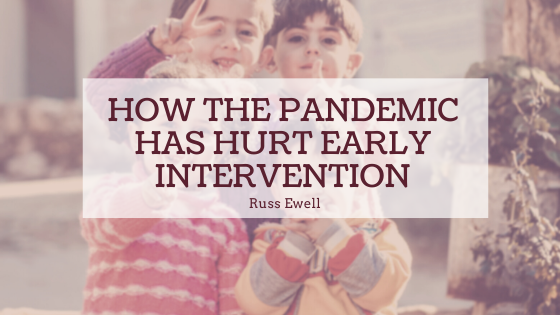For many special needs students, early intervention is a key part of providing assistance. By giving children accommodations and therapy at an early age, they get the tools they need to continue growing and advancing. Unfortunately, many child therapists worry that the COVID-19 crisis may make early intervention more challenging. There are a few unique factors that may keep children from getting the diagnosis and care they need.
Teletherapy Doesn’t Address Unique Needs of Many Families
Most therapists have had to put an end to in-person visits for the time being. Early intervention experts are continuing to help their clients with the use of teletherapy, however, this can be challenging. Some children do not respond well to voice instructions and televised body language. Instead, they need physical contact and hands-on therapy to be engaged. Without their regular therapy sessions, many therapists worry that patients are regressing or falling behind in progress.
Professionals Who Can Spot Warning Signs Are Not Seeing Children Now
In many cases, it is not a parent who first decides a child needs testing and treatment. Parents are often not trained to recognize early warning signs, which can be very subtle. Often, symptoms go away when a child is in a familiar environment, so it may be hard for a parent to notice things like the socializing challenges present in autism spectrum disorders. Instead, it is often pediatricians and school teachers who recommend that a parent see a specialist. With many families staying at home, they are not interacting with experts who could refer them to get help. Brighton, an Early Childhood Intervention agency reports that their number of monthly referrals has dropped from around 350 to below 100.
Government Funding May Be on the Decline
Most early intervention programs are at least partially funded by the government. However, most departments calculate the amount of funding a clinic receives by looking at the number of patients in the previous year. With 2020 referrals so low, many therapists are left worrying their budget will be slashed in the upcoming year. Furthermore, available funds may be used for COVID-19 business relief efforts instead of childhood care. This may make it even harder to provide care to at-risk families.

